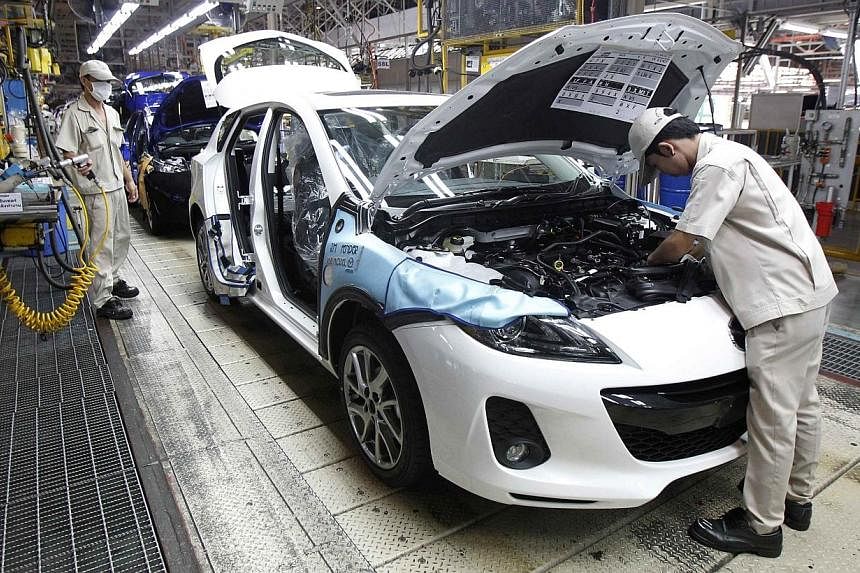CHONBURI, Thailand (REUTERS) - Thailand's second military coup in a decade will not scare off foreign car firms, who still prize its skilled labour force and network of parts suppliers, but expansion plans are on hold after months of unrest as Indonesia lures some investment away.
The auto industry accounts for about 11 percent of Southeast Asia's second largest economy, and most of the big global players use the country as a regional hub. "That will not change," said Takao Katagiri, Nissan Motor Co Ltd's regional chief. "There is a strong foundation there including the supplier network. That's not something that can be changed so easily."
In the short term, the turmoil that prompted the army to seize power in a bid to end seven months of sometimes violent street protests has not changed much for the big car makers, who are likely to export around half the cars they make in Thailand this year. "What is happening now has not had a direct impact on actual livelihoods and corporate activities. Manufacturing is operating smoothly and our sales and business operations are going on as usual today," Katagiri said.
Smaller players in the supply chain are suffering more, due to the damage the unrest has inflicted on domestic demand. Auto parts maker Aapico Hitech Plc said on Thursday its 2014 revenue would fall 10-15 percent, worse than earlier forecast.
At the sprawling Amata Nakorn industrial estate at Chonburi, 60 km east of Bangkok, 30-year-old Rungsan Seagproa said he had suffered a drop in his 19,000 baht-a-month ($580) salary after the auto parts supplier he works for cut back on production.
"The factory is running at around 30-40 percent," said the assembly worker. "I lost about a few thousand baht after the company cut the overtime shift. Now, I need to be careful about spending." At least 30,000 subcontracted workers in the auto sector have been laid off because of the slowdown this year.
Scores of politicians were detained for a while after the coup and censorship imposed, but some Thais welcomed the relative calm and the return of functioning government. One Toyota executive familiar with the country agreed. "We'll take an orderly coup d'etat any time over a highly dysfunctional democracy that led to a gap in political leadership in Thailand over the past six months," he said.
Car industry executives say the mood in Thailand was morose even before the coup.
Domestic vehicle sales had surged a heady 80 percent in 2012 to 1.44 million vehicles, fuelled by a state subsidy for first-time car buyers that was part of government efforts to boost the economy after floods devastated great swathes of Thailand in 2011, including huge industrial parks in the central provinces.
That couldn't last, and sales fell nearly 8 per cent to 1.33 million in 2013, according to the Federation of Thai Industries. Toyota Motor Corp has forecast a further drop of 14 percent this year as political turmoil has pushed consumer confidence to a 12-year low.
It is not just the auto industry that is suffering because of the unrest. Figures on Wednesday showed factory output was lower than a year before for the 13th consecutive month in April and capacity utilisation in industry stood at just 56.6 percent, the lowest since the peak of the flooding in December 2011.
Imports were 14.5 per cent lower than a year before as the domestic economy stagnated and exports continued to struggle, down 0.9 percent compared with April 2013.
Thailand's car sector is suffering from longer-term problems, too, including a shortage of labour and wages that are higher than elsewhere in the region.

